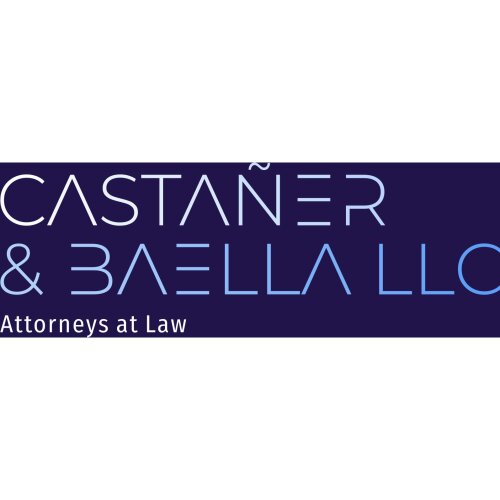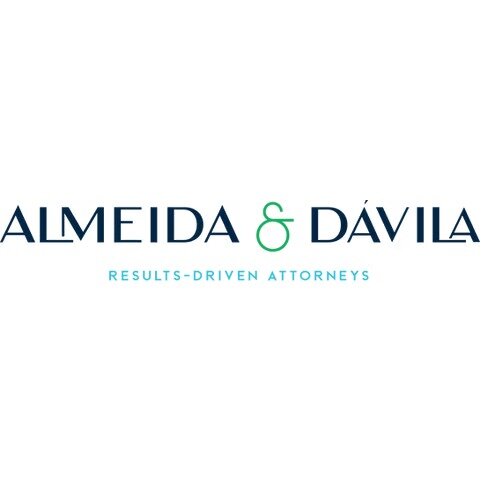Best Toxic Mold Lawyers in San Juan
Share your needs with us, get contacted by law firms.
Free. Takes 2 min.
List of the best lawyers in San Juan, Puerto Rico
About Toxic Mold Law in San Juan, Puerto Rico
Toxic mold refers to various types of molds that produce allergens and irritants, which can lead to health problems in humans. In San Juan, Puerto Rico, the humid and warm climate provides an ideal environment for mold growth. This has led to an increasing need for awareness and action regarding mold issues, particularly those involving toxic varieties such as Stachybotrys chartarum, commonly known as black mold. The legal landscape in Puerto Rico concerning toxic mold is still evolving, focusing on holding landlords, property owners, and builders accountable for mold-related health issues and property damages.
Why You May Need a Lawyer
There are several instances where seeking legal advice could be beneficial if dealing with toxic mold in San Juan:
- Health Concerns: If exposure to toxic mold has caused health issues, a lawyer can help in seeking compensation for medical expenses and related damages.
- Property Damage: Mold can cause significant damage to property, making it unsafe or reducing its value. Legal guidance can assist in claims for repair or remediation costs.
- Landlord-Tenant Disputes: Renters exposed to mold in their homes may need legal help if landlords fail to address mold issues adequately.
- Home Purchases: Prospective home buyers should consider legal advice if mold is discovered during inspections or after buying a home to negotiate repairs or compensation.
- Workplace Exposure: Employees exposed to mold in their workplace may require legal assistance to address their rights and seek remedies.
Local Laws Overview
While Puerto Rico does not have specific laws solely dedicated to mold issues, several legal principles and frameworks apply:
- Warranty of Habitability: This implies a landlord's responsibility to maintain rental properties in livable condition, including being free from health hazards like toxic mold.
- Tort Law: Affected individuals can pursue claims under tort laws for negligence if another party's failure to prevent or address mold has resulted in harm.
- Contractual Obligations: Real estate transactions in San Juan may involve contractual clauses that hold sellers liable for undisclosed mold issues.
Given these general principles, specialized legal assistance can help navigate the specificities of mold-related cases within this framework.
Frequently Asked Questions
1. What health symptoms are associated with toxic mold exposure?
Exposure can cause respiratory issues, allergies, skin irritation, and even cognitive effects, especially in those with pre-existing health vulnerabilities.
2. Who is responsible for mold remediation in rental properties?
The responsibility typically falls on landlords to maintain the property in a safe, habitable condition, including addressing mold issues.
3. Can I sue my landlord for toxic mold-related health issues?
Yes, if your health problems are related to negligent upkeep of the property, you may have grounds for a lawsuit.
4. What should I do if I discover mold in my purchased home?
Notify the seller or builder immediately, document the issue, and seek legal advice to explore your options for remediation or compensation.
5. How can I prove my health problems are caused by mold?
A combination of medical records, environmental reports, and expert testimony can help establish a connection between exposure and symptoms.
6. Are there any preventive measures for toxic mold growth?
Yes, using dehumidifiers, ensuring proper ventilation, and promptly fixing leaks can help prevent mold growth.
7. Can toxic mold affect the value of my property?
Yes, significant mold infestations can reduce property value and complicate real estate transactions.
8. What if my workplace has mold issues affecting my health?
Report it to your employer and seek legal advice to discuss potential claims for unsafe work conditions.
9. Is a mold disclosure required in real estate transactions?
While not mandatory in all cases, disclosure of known mold issues is considered best practice to avoid future liability.
10. How soon should I act upon discovering mold?
Act promptly to document the mold, notify relevant parties (landlord, seller), and seek legal and professional advice to mitigate effects.
Additional Resources
Several resources can provide further information and assistance related to toxic mold in San Juan, Puerto Rico:
- Puerto Rico Department of Environmental and Natural Resources (DRNA)
- U.S. Environmental Protection Agency (EPA)
- Centers for Disease Control and Prevention (CDC)
- Local legal aid societies specializing in tenant rights and environmental issues
- Professional mold inspection and remediation companies
Next Steps
If you suspect you have a toxic mold issue requiring legal advice in San Juan, consider taking the following steps:
- Document the issue thoroughly through photographs, communication logs, and health assessments.
- Consult local professionals for a mold inspection and remediation assessment.
- Seek legal advice from attorneys specializing in environmental law or personal injury, who can help assess your case.
- Contact relevant authorities if there is a breach in housing standards to ensure your safety and legal rights.
By following these steps, you can better understand and address the legal implications of toxic mold exposure effectively.
Lawzana helps you find the best lawyers and law firms in San Juan through a curated and pre-screened list of qualified legal professionals. Our platform offers rankings and detailed profiles of attorneys and law firms, allowing you to compare based on practice areas, including Toxic Mold, experience, and client feedback.
Each profile includes a description of the firm's areas of practice, client reviews, team members and partners, year of establishment, spoken languages, office locations, contact information, social media presence, and any published articles or resources. Most firms on our platform speak English and are experienced in both local and international legal matters.
Get a quote from top-rated law firms in San Juan, Puerto Rico — quickly, securely, and without unnecessary hassle.
Disclaimer:
The information provided on this page is for general informational purposes only and does not constitute legal advice. While we strive to ensure the accuracy and relevance of the content, legal information may change over time, and interpretations of the law can vary. You should always consult with a qualified legal professional for advice specific to your situation.
We disclaim all liability for actions taken or not taken based on the content of this page. If you believe any information is incorrect or outdated, please contact us, and we will review and update it where appropriate.









